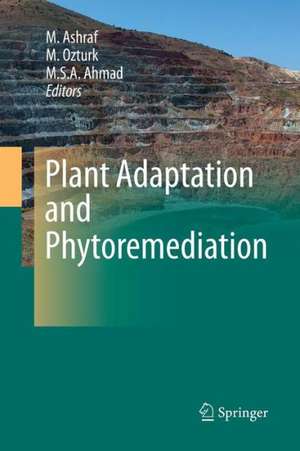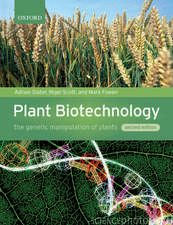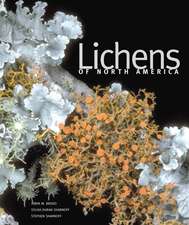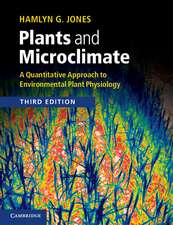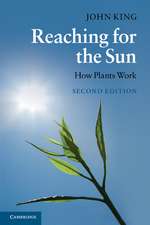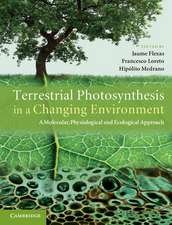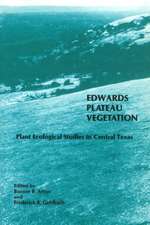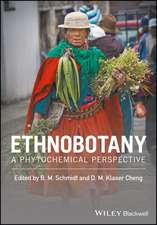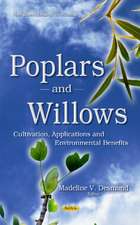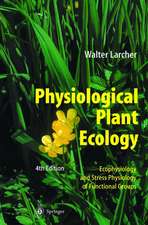Plant Adaptation and Phytoremediation
Editat de M. Ashraf, M. Ozturk, M. S. A. Ahmaden Limba Engleză Paperback – 6 noi 2014
| Toate formatele și edițiile | Preț | Express |
|---|---|---|
| Paperback (1) | 1225.94 lei 6-8 săpt. | |
| SPRINGER NETHERLANDS – 6 noi 2014 | 1225.94 lei 6-8 săpt. | |
| Hardback (1) | 1230.66 lei 6-8 săpt. | |
| SPRINGER NETHERLANDS – 6 sep 2010 | 1230.66 lei 6-8 săpt. |
Preț: 1225.94 lei
Preț vechi: 1495.04 lei
-18% Nou
Puncte Express: 1839
Preț estimativ în valută:
234.58€ • 245.58$ • 194.10£
234.58€ • 245.58$ • 194.10£
Carte tipărită la comandă
Livrare economică 07-21 aprilie
Preluare comenzi: 021 569.72.76
Specificații
ISBN-13: 9789401780513
ISBN-10: 940178051X
Pagini: 492
Ilustrații: X, 481 p.
Dimensiuni: 155 x 235 x 26 mm
Greutate: 0.68 kg
Ediția:2010
Editura: SPRINGER NETHERLANDS
Colecția Springer
Locul publicării:Dordrecht, Netherlands
ISBN-10: 940178051X
Pagini: 492
Ilustrații: X, 481 p.
Dimensiuni: 155 x 235 x 26 mm
Greutate: 0.68 kg
Ediția:2010
Editura: SPRINGER NETHERLANDS
Colecția Springer
Locul publicării:Dordrecht, Netherlands
Public țintă
ResearchCuprins
Toxins and Resistance Mechanisms.- Toxins and Their Phytoremediation.- Molecular Mechanisms and Genetic Basis of Heavy Metal Toxicity and Tolerance in Plants.- Biomonitoring of Heavy Metal Pollution Using Lichen (Pseudevernia furfuracea (L.) Zopf.) Exposed in Bags in a Semi-arid Region, Turkey.- Heavy Metal Toxicity in Plants.- Mechanism of Free Radical Scavenging and Role of Phytohormones in Plants Under Abiotic Stresses.- The Role of Arbuscualr Mycorrhizae in Inducing Resistance to Drought and Salinity Stress in Crops.- Predicting Growth, Carbon Sequestration and Salinity Impacts of Forestry Plantations.- Structural and Functional Adaptations in Plants for Salinity Tolerance.- Phytoremediation.- Plant Resistance to Anthropogenic Toxicants: Approaches to Phytoremediation.- Biochemical and Molecular Aspects in Phytoremediation of Selenium.- Perspective on Phytoremediation for Improving Heavy Metal-Contaminated Soils.- The Structural and Functional Characteristics of Asiatic Desert Halophytes for Phytostabilization of Polluted Sites.- Boron and Plants.- Potential for the Use of Rhizobacteria in the Sustainable Management of Contaminated Soils.- Phytoremediation of Saline Soils for Sustainable Agricultural Productivity.- Salts as Potential Environmental Pollutants, Their Types, Effects on Plants and Approaches for Their Phytoremediation.- Phytoremediation of Toxic Explosives.- Phytoremediation of Cyanide.- Herbicides and Pesticides as Potential Pollutants: A Global Problem.
Textul de pe ultima copertă
The problems engendered by the conflicting imperatives of development and ecology show no sign of ending, and every day more locations are added to the list of landscapes poisoned by human activity. This vital book, featuring an international set of authors, is a key reference for researchers and environmental managers, as well as anyone involved in the mining industry or landscape remediation.The comprehensive coverage of current approaches to phytoremediation begins by examining the problem. It looks at natural and human-induced toxins, and their effects on natural vegetation as well as agricultural crops. Particular attention is paid to the two largest challenges to remediation – heavy metals, and the salt stress that is impeding agricultural productivity worldwide. The text moves on to focus on the efficacy of different plant species in removing toxic pollutants from the environment. Along with analysis of a number of case studies, this section includes new and updated information on the mechanism of toxin-tolerance in plants.
Caracteristici
International authorship including European countries, Turkey, Malaysia, China, South American Countries, India, Pakistan Covers recent updates in biochemical, metabolic and physiological responses of plants to toxins and tolerance mechanisms Summarises approaches for use of phytoremediation as a potential source for amelioration of contaminated soils Comprised of review articles allowing greater accessibility and wider geographical relevance
